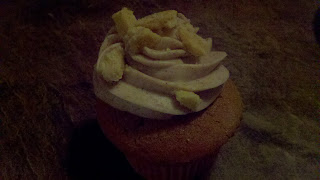 Storm Front by Jim Butcher
Storm Front by Jim ButcherMy rating: 5 of 5 stars
After years of being told that I should read The Dresden Files, I finally remembered and picked this up at the library.
I loved it.
Think hard-boiled detective novel meets fantasy, with a touch of humor. I really liked Dresden - everything from the way I pictured him to the way he spoke and the slight twist on what otherwise might be cliche. Butcher takes stereotypes (ie, the hard-nosed private investigator) and makes them more interesting with innovative twists (ie, oh yeah, he's a wizard. And a gentleman.).
The book is well-paced, a page turner that kept me flipping to the end, and the story was very easy to follow. Butcher balances the details of his world nicely, too. There are places where Dresden explains aspects of the world to the reader (like a detective narrative), but there are others where he doesn't - and he doesn't need to, the details are sprinkled in and it's easy to pick up what's important and move on. Nor is he shy about setting Dresden up for failure (or a little pain) which had me pulling for the wizard even more as I got to the end.
I recommend this book to anyone who's ever enjoyed even light fantasy, detective stories, or someone who's just up for a unique twist on old ideas.
View all my reviews












